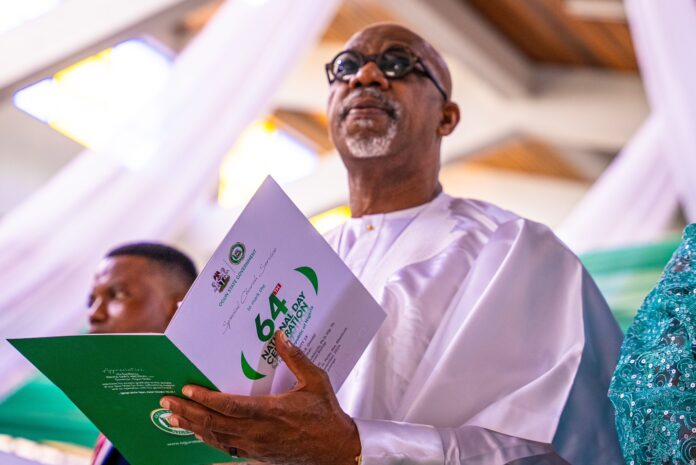The Ogun State Government has strongly opposed the establishment of a Sharia Court within its jurisdiction, issuing a stern warning against any attempts to launch or operate such a court without proper legal authority.
This announcement, made in a statement signed by Governor Dapo Abiodun on January 28, 2025, underscores the state’s commitment to upholding its constitutional framework and ensuring that no unauthorised judicial body operates outside the law.
The government’s response follows the circulation of a digital notice claiming the launch of a Sharia Court in the state. Describing the act as illegal and without legal backing, Governor Abiodun’s statement emphasised that the only courts recognised in Ogun State are those established by the Nigerian Constitution or state laws.
“No Sharia Court is authorised to operate within Ogun State,” the statement declared unequivocally.
Legal Framework in Ogun State
The Ogun State Government clarified that its judicial system is governed by the Constitution of the Federal Republic of Nigeria, which provides for a structured hierarchy of courts. These include Magistrates’ Courts, the High Court, Customary Courts, the Customary Court of Appeal, the Federal High Court, the National Industrial Court, the Court of Appeal, and the Supreme Court.
Governor Abiodun stressed that no existing law in Ogun State accommodates the establishment of a Sharia Court, nor does Sharia law form part of the state’s legal framework.
“The courts that are legally empowered to adjudicate disputes arising within Ogun State are those established by the Constitution or State Laws,” the governor noted.
Respect for Religious Freedom
While reaffirming Ogun State’s respect for religious diversity and individual freedoms, the government clarified the boundaries of such liberties.
“The Ogun State Government upholds and protects the rights of individuals to practise the religion of their choice or to subscribe to no religion,” the statement read.
However, the governor warned that this freedom does not extend to the formation of unauthorised institutions or assemblies. “No individual or group is legally permitted to constitute a court or present themselves to the public as a court without legal backing,” he added.
Immediate Action Ordered
In a decisive move, the Ogun State Government directed those involved in the creation and operation of the unauthorised Sharia Court to cease all related activities immediately.
“All persons involved in the creation or operation of the unauthorised court must immediately disband the illegal entity and all its apparatus,” the statement ordered.
Additionally, members of the public were urged to disregard any communications, summons, or documents associated with the illegal Sharia Court. The government encouraged citizens to promptly report such occurrences to relevant authorities to maintain law and order.
Preventing a Breakdown of Order
Governor Abiodun’s administration has expressed its unwavering commitment to preserving the rule of law and ensuring respect for Ogun State’s legal and judicial systems. The government assured residents that measures would be taken to prevent any activities that could disrupt societal order.
“The Ogun State Government will uphold the rule of law, ensure respect for the legal and judicial framework within the state, and prevent a breakdown of law and order,” the statement affirmed.
Background and Implications
The controversy over the proposed Sharia Court highlights ongoing tensions surrounding the intersection of religion and governance in Nigeria. While Sharia law is constitutionally recognised in some northern states, its introduction into regions without a Muslim-majority population, such as Ogun State, often sparks debate.
Experts note that the Nigerian Constitution guarantees freedom of religion but places restrictions on any form of governance or judicial process that does not align with the country’s legal framework.
Dr. Adegboyega Olowu, a constitutional lawyer based in Lagos, explained that states have the autonomy to determine their legal systems, provided they operate within the confines of the Constitution.
“The establishment of Sharia Courts is legal only in states that have specifically incorporated it into their judicial framework. Ogun State does not fall into this category,” he said.

